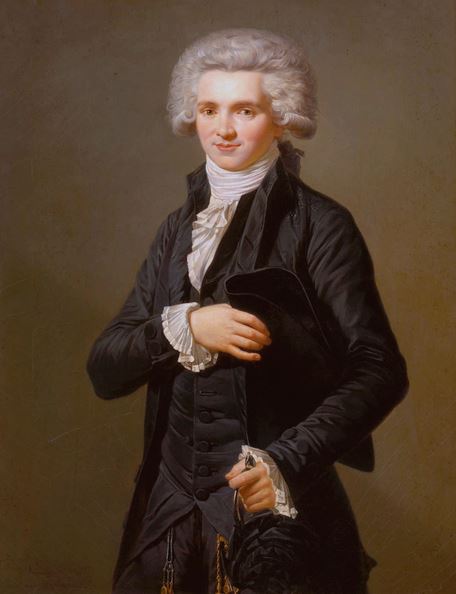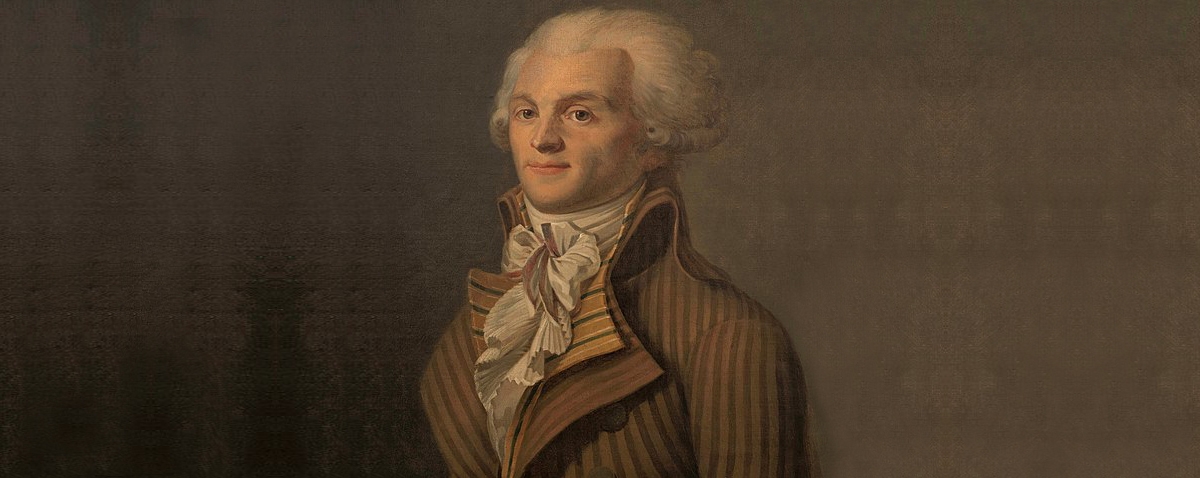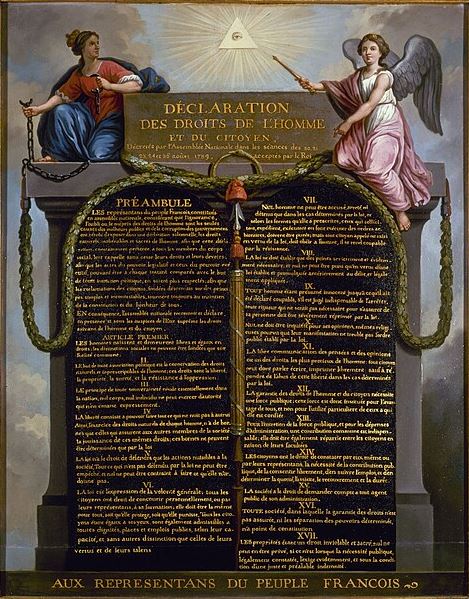Maximilien Robespierre is a name etched in the pages of history and more of a controversial figure. Born in France in 1758, he was a powerful and influential figure during the French Revolution. His life and works are a source of fascination for many people. Known as the “Incorruptible” [1], Robespierre was a lawyer, a philosopher, and a politician who rose to prominence during the tumultuous period of the French Revolution.
The French Revolution was a period of social and political upheaval in France during the late 18th century. The Revolution began in 1789 and ended in 1799 with the dictatorship of Napoleon Bonaparte. During this time, the French people overthrew the absolute monarchy, established a republic, and briefly enjoyed a period of democracy.
Among the most significant figures of this revolution was Maximilien Robespierre who had a significant impact on the events leading up to and during the Revolution. He was an influential leader of the Revolution’s Jacobin faction and is remembered as one of its most controversial figures during the Reign of Terror.
Early Life and Political Career
Maximilien Robespierre was born on May 6, 1758, in the city of Arras, France. He attended a local school in Arras, where he excelled in his studies. After completing his education at Louis-le-Grand, Robespierre studied law at the University of Paris. He distinguished himself as a diligent and intelligent student, earning a reputation for his passion for justice and commitment to advocating for the rights of the underprivileged.
After graduating in 1781, Robespierre began practicing law. He quickly gained a reputation as a skilled lawyer, focusing on cases involving the poor and disadvantaged. Robespierre’s legal career provided him with a platform to voice his concerns about social injustice and the abuses of the French monarchy, which fueled his growing interest in revolutionary activities.
He became a prominent member of the Jacobin Club, a political club that played a crucial role in the events leading up to the French Revolution. As a passionate and eloquent speaker, Robespierre gained attention for his speeches denouncing the monarchy and calling for democratic reforms. His belief in the principles of liberty, equality, and fraternity made him a popular figure among those who sought change in France.
In 1789, Robespierre was elected as a deputy to the Estates-General, the legislative body that was convened to address France’s financial crisis and political issues. As a deputy, he aligned himself with the radical left-wing faction known as the Montagnards. Robespierre consistently argued for more progressive policies, including the abolition of feudalism and absolute monarchy. This election marked a turning point in his political career, propelling him into the national spotlight.
Rise To Prominence

The Estates-General was later transformed into the National Constituent Assembly, and Robespierre played an active role in shaping the course of the French Revolution. He consistently spoke out against the monarchy and advocated for democratic reforms. Robespierre supported the drafting and adoption of the Declaration of the Rights of Man and of the Citizen [2], a foundational document that outlined the principles of liberty, equality, and popular sovereignty.
Robespierre’s speeches in the Assembly focused on the need for political and social equality, denouncing privileges based on birth and calling for the establishment of a republic. He firmly believed that the Revolution should result in a government that represented the interests of all citizens, particularly the working class and the underprivileged.
His political stance became increasingly radical as the Revolution progressed. He became associated with the more radical factions and developed a reputation as an uncompromising defender of the people’s rights.
Robespierre’s influence grew significantly after the fall of the monarchy in August 1792. He emerged as a key figure in the new government when the First French Republic was established. He became a member of the Committee of Public Safety, a powerful executive body responsible for protecting the Revolution and governing France during a time of crisis. The Committee’s commitment to the revolutionary cause led to the implementation of radical policies.
During the period known as the Reign of Terror, Robespierre and the Committee adopted measures to suppress counter-revolutionary activities and preserve the gains of the Revolution. These measures included mass executions, particularly through the use of the guillotine, to eliminate perceived threats to the Republic. While the authoritarian approach and the extreme violence of the Reign of Terror were met with criticism, Robespierre’s popularity persisted. He continued to be seen by many as a symbol of the Revolution’s ideals, even as public sentiment began to turn against the excessive use of violence.
The First French Republic
Maximilien Robespierre played a significant role in the establishment of the First French Republic. His role in the trial and execution of King Louis XVI in 1793 further solidified his reputation as a staunch defender of the Republic. By actively participating in the condemnation of the king, Robespierre emphasized the irreconcilable nature of the Revolution with the monarchy, paving the way for the establishment of a new political system.
Robespierre was also involved in the drafting of the Constitution of 1793. [3] The Constitution of 1793 enshrined the idea of popular sovereignty, stating that the people were the ultimate source of political power. It provided for universal suffrage, recognizing the right of all adult males to vote. The constitution also introduced social and economic provisions aimed at promoting equality. This includes the right to work, free education, and the guarantee of basic necessities for all citizens.
Although it was never fully implemented due to the challenges and turmoil at the time, the Constitution of 1793 represented Robespierre’s vision for a society based on democratic principles and social equality. He argued for measures such as progressive taxation, price controls, and limitations on wealth accumulation to curb social disparities. Robespierre envisioned a society where the needs of the poor and vulnerable were prioritized, and where privilege and aristocracy were eliminated.
The Reign of Terror
As a member of the Committee of Public Safety, Robespierre played a central role in suppressing counter-revolutionary forces and dissent within France. The Committee implemented a series of policies aimed at identifying and eliminating perceived enemies of the Revolution. They sought to eradicate both political opposition and those deemed counter-revolutionary or conspiring against the Republic.
One of the most notorious aspects of the Reign of Terror was the widespread use of the guillotine as a method of execution. Robespierre and the Committee of Public Safety authorized and oversaw numerous executions, targeting a range of individuals, including former nobility, clergy, political opponents, and even fellow revolutionaries who were deemed threats to the Revolution.
The executions were often carried out in public and were intended to serve as a deterrent to counter-revolutionary activities. The guillotine became a symbol of the Reign of Terror [4] and the extreme measures taken to protect the Revolution.
Opposition and Downfall
Robespierre’s extreme policies and the excessive use of violence during sparked controversy and opposition. Many criticized the indiscriminate use of the guillotine, as thousands of people, including individuals who were not necessarily counter-revolutionaries, were executed. The scale and severity of the repression, coupled with the erosion of individual liberties, led to growing discontent among both moderate revolutionaries and the general population.
There were tensions between the more radical Montagnards, led by Robespierre, and the more moderate Girondins. They increasingly came into conflict over the extreme measures taken.
The uncompromising pursuit of revolutionary ideals combined with Robespierre’s growing influence led to accusations of tyranny and dictatorship. Critics argued that he was centralizing power in his own hands and suppressing dissent. The erosion of civil liberties, such as freedom of speech and association, further fueled concerns about his authoritarian tendencies.
In 1794, the opposition to Robespierre and the Committee of Public Safety [5] reached a tipping point. A coalition of political factions, including former allies and rival groups, orchestrated a coup to overthrow Robespierre and his supporters. Robespierre was arrested and brought before the National Convention.
On July 28, 1794, Robespierre, along with several of his supporters, including his brother Augustin, were executed by guillotine. [6] This event marked the end of an era and the downfall of the Reign of Terror. It brought an end to the most radical phase of the French Revolution and marked a significant turning point in the course of the Revolution itself. The First French Republic lasted until 1804 when the First Empire was declared under Napoleon Bonaparte.
Legacy and Historical Interpretations
Robespierre’s legacy continues to be analyzed and interpreted by historians, political analysts, and philosophers. The debate surrounding his character, motives, and the consequences of his actions reflects the complexity of the French Revolution itself.
His role and ideology continue to be subjects of intense debate among historians and scholars. Some argue that he was a principled revolutionary who sincerely believed in the ideals of the Revolution and fought for the rights of the common people. They see him as a champion of social justice and equality, albeit with some misguided tactics.
Others view Robespierre as a power-hungry opportunist who used the Revolution to consolidate his own authority. They argue that his extreme policies and the Reign of Terror were motivated by a desire for personal control and that his commitment to revolutionary ideals was secondary to his thirst for power.
Supporters credit him with promoting and advancing the revolutionary principles of liberty, equality, and fraternity. Critics, however, argue that the extreme measures taken during the Reign of Terror overshadow any positive contributions he may have made.
One of the main criticisms of Robespierre revolves around his use of authoritarian tactics during the Reign of Terror. The mass executions and suppression of individual liberties led many to view him as a dictator who trampled on the principles of the Revolution in the name of stability and control. The use of violence as a means of enforcing revolutionary principles is often seen as a betrayal of the very principles Robespierre claimed to uphold.
Yet, some scholars argue that Robespierre’s radicalism and the Reign of Terror were necessary for the survival of the Revolution during a time of external and internal threats. They contend that the period of intense repression was a response to the extraordinary circumstances of the time.
Overall, the ongoing analysis of Robespierre’s legacy serves to deepen our understanding of the French Revolution and its complex dynamics. It also prompts broader discussions about the challenges of implementing revolutionary change, the delicate balance between ideals and practicalities, and the potential dangers of sacrificing individual liberties for the sake of revolutionary goals.
Conclusion
Maximilien Robespierre played a significant role in the French Revolution, particularly during the radical phase of the Revolution known as the Reign of Terror. His unwavering commitment to revolutionary principles, as well as his role in suppressing counter-revolutionary forces and implementing policies during the Reign of Terror, have left a lasting impact on the understanding of this critical period in French history.
By engaging in ongoing discussions and evaluations of Robespierre’s significance, we gain a deeper understanding of the French Revolution, its complexities, and its enduring impact on the course of history. The diverse perspectives and interpretations allow us to examine the Revolution from various angles and shed light on the challenges, contradictions, and lessons it presents.
References
- History.com Editors. (2010, February 9). Robespierre overthrown in France. HISTORY. https://www.history.com/this-day-in-history/robespierre-overthrown-in-france
- The declaration of the rights of man and of the citizen. (n.d.). elysee.fr. https://www.elysee.fr/en/french-presidency/the-declaration-of-the-rights-of-man-and-of-the-citizen
- 1793: French Republic Constitution of 1793. (n.d.). Online Library of Liberty. https://oll.libertyfund.org/page/1793-french-republic-constitution-of-1793
- Guillotine. (n.d.). Encyclopedia Britannica. https://www.britannica.com/topic/guillotine
- History, A. (2022, March 30). The committee of public safety. French Revolution. https://alphahistory.com/frenchrevolution/committee-of-public-safety/
- Mark, H. W. (2022, November 23). Robespierre & the death penalty. World History Encyclopedia. https://www.worldhistory.org/article/2113/robespierre–the-death-penalty/



